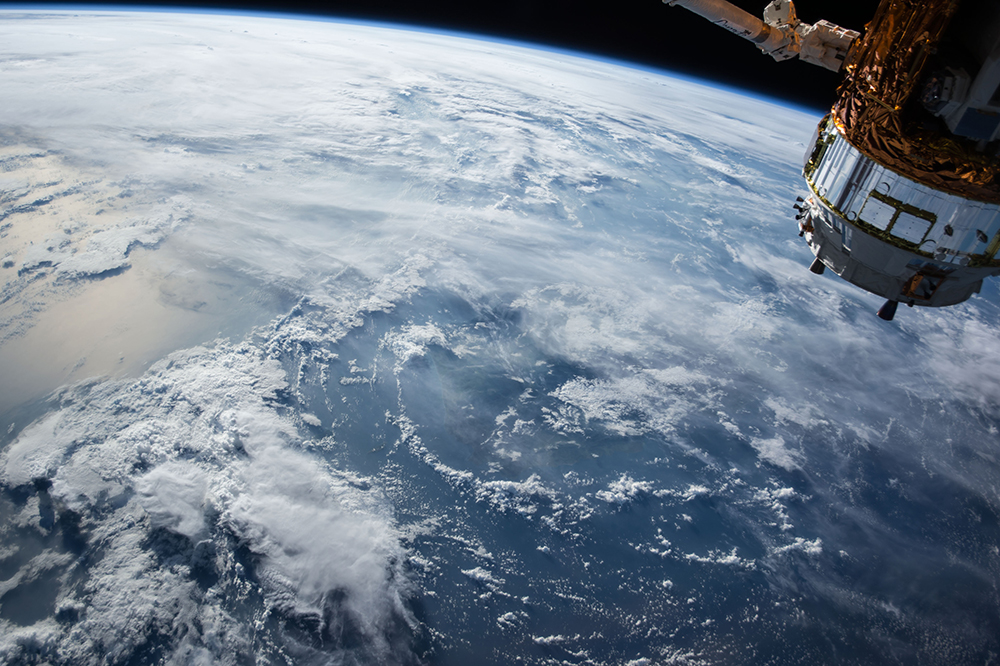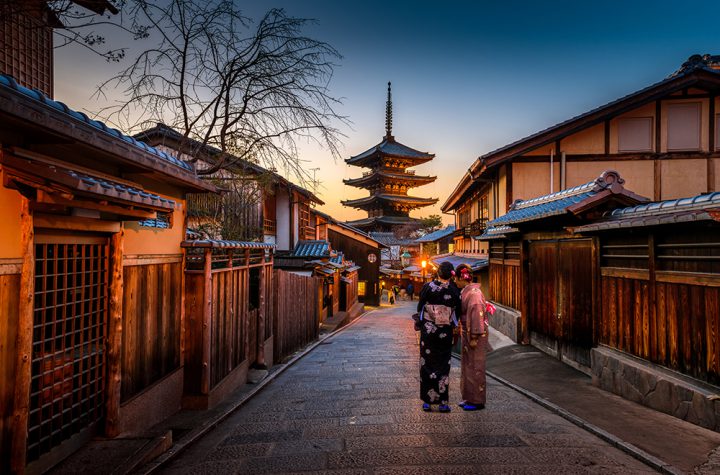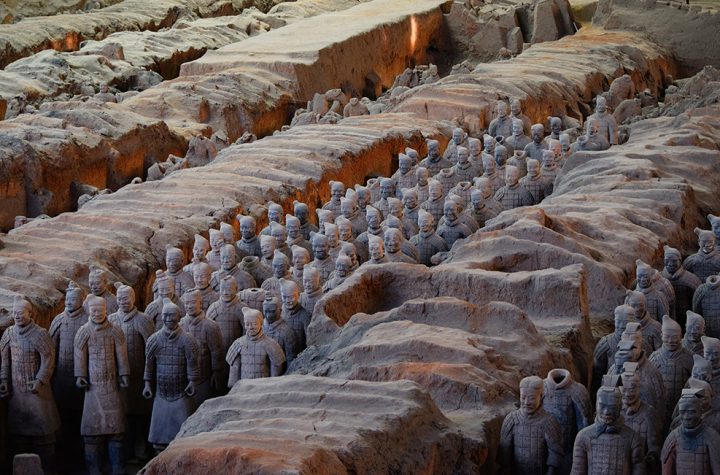
Posted
January 11, 2020 05:00:57
The Eyre Highway reopened on Friday after being closed for 12 days because of bushfires.
You might not have driven on the Eyre Highway. But if you want to take the long route north via Kununurra, it is the only sealed highway linking eastern Australia with Western Australia.
The Kings Highway is expected to be closed for most of January. That’s the highway that links Canberra with the south coast.
Parts of that road are said to have just melted down the steep sides of Clyde Mountain in fires that have burnt virtually all of the bush from Braidwood to Batemans Bay.
Many communities across the country have been told to boil their drinking water because of contamination linked to bushfires either by ash, such as in Tenterfield, or by the mixing of water supplies during firefighting, as has happened on the NSW south coast.
And that’s the case for the communities that have not simply just run out of water.
There are concerns that Sydney’s water supply could be severely affected in months to come if the ash from huge areas of burnt out bush around Warragamba Dam, which provides 80 per cent of Sydney’s water, runs into the dam after heavy rainfall.
The bizarre state of our national conversation
It’s hard to take pictures of closed highways, or compromised water supplies.
But these examples give just some idea of the knock-on effects of fires like those we have seen this catastrophic summer.
We are leaving aside, for a moment, the human trauma and loss in fire grounds, and the latest estimate from Australian Academy of Science Fellow, Professor Chris Dickman, that one billion animals have now been killed in the bushfires a figure that includes mammals, birds and reptiles, but not bats, frogs, insects or other invertebrates.
Our political leaders are, so often, so much more comfortable framing crises in economic or national security terms, particularly when traumatised people don’t want to shake their hands.
If it was sabotage that had closed our major arterial highways like the Eyre or even the Princes Highway down the east coast (as it was in multiple locations for many days) you can imagine the sort of political rhetoric and hysteria that would have been going on at the moment.
But instead, we continue to have this bizarre situation continuing where a few belligerent types in politics and very noisy ones in the media seem to set the limits of our conversation.
It is apparently okay to canvas the misleading idea that the fires have been primarily caused by arson, or deliberately insufficient hazard reduction which experts including NSW Rural Fire Services Commissioner Shane Fitzsimmons have rejected.
But it apparently isn’t okay to simply say that clearly the climate has changed (even to say that without saying because it’s due to, you know, climate change).
When an issue is not an issue
Climate change as a possible linkage with the fires is sometimes referred to as “issues”, or even “issues contributing to the event”.
Sometimes the bushfires are boldly linked to the drought (which of course, may just also be linked to “issues”).
The Prime Minister hit the airwaves on Thursday night and Friday morning, talking about the various measures the Government has put in place in the last week or so, including calling out Defence Force reservists and $2 billion of funding (various) for bushfire relief.
It’s hard not to listen to these interviews though, and get the sense that he is rattling off an alibi; that he remains on the defensive.
On Melbourne radio on Friday, for example, he was asked whether this might be the new normal very long fire seasons, affecting many different parts of the country which might require a new permanent mechanism to deal with it
These were obviously issues to be considered, Scott Morrison said.
“I mean, we stood this [the ADF reservists] up last Saturday,” he responded.
“We had it moving several days before. We’d actually run a trial process for the call out back in November to ensure that we were in a position to be able to roll that out should that become necessary. And it did become necessary.
“I mean, the scale of these fires going across two very large jurisdictions reached an unprecedented level and that required an unprecedented response at that time and one was delivered and delivered very quickly.”
Shockwaves keep going wider
The economic impact of these fires has not been limited this time around to people who have lost homes or businesses, or even small communities.
Vast swathes of coastal NSW and Victoria have lost their most lucrative trading seasons. They have often also been cut for days, by road, telecommunications and power.
Businesses in towns like Braidwood and Bungendore, which have long prospered on the holiday traffic from Canberra to the coast, say their streets are like ghost towns.
The newly appointed recovery coordinator for southern NSW, retired deputy police commissioner Dick Adams, told a local paper this week: “Eden has lost their mill, Mt Selwyn has lost their whole resort, softwood plantations in Tumut, dairy in Bega, apple orchards in Batlow…
“What we’ve found, is when bushfire is impacting these areas and people are evacuated out, some may not return. We need to work to get people back.”
There is some emergency financial assistance from the Federal Government for people who have lost everything, and grants to local governments who have to repair roads. And state governments provide some low interest loans for small businesses in trouble.
But the shockwaves keep going wider.
Even in Canberra, where luckily fires haven’t yet hit, hotels are reporting that around 15 per cent of bookings for January have been cut because the national capital has become infamous for literally having the worst air quality in the world thanks to bushfire smoke.
A royal commission is pretty convenient
The point here is to simply document how these fires are affecting all sorts of aspects of our lives way beyond the terror they represent up close.
And that means they are also changing our political conversation, on everything from the environment to the role of government.
The Prime Minister has suggested there might be a royal commission into all we can learn from these fires, including their causes, though of course he has not actually locked into calling one.
Excuse the cynicism, but doesn’t a possible royal commission whatever its ultimate virtues provide the perfect response in the short term for any question you don’t want to answer?
For example, “well that will be a matter for the royal commission to determine”.
A Government that has held on, at great cost to rational policy making, to a budget surplus now stuck together with sticky tape, will at least have an honourable reason to not meet its surplus target if it does actually start spending money because of our burning summer.
But the sort of ripple effects we are talking about here on the economy suggest very tough times ahead for the country as a whole with the only really obvious positive a fire-led building boom.
The economy and national security are supposed to be the Coalition’s strong points.
Yet even in the face of a catastrophe that shows our infrastructure vulnerable, and the economy under threat, we are still overwhelmed with political management.
Laura Tingle is 7.30’s chief political correspondent.
Stay across our bushfire coverage:
Topics:government-and-politics,
federal-government,
fires,
bushfire,
pollution-disasters-and-safety,
climate-change—disasters,
environment,
climate-change,
australia




More Stories
A teenager from Co Offaly has been “inundated” with orders for his handmade reindeer decorations after his mother put up a post in a popular Facebook group.
Run Windows apps such as Microsoft Office in Linux (Ubuntu) and GNOME as if they were a part of the native OS, including Nautilus integration. – Fmstrat/winapps
With Australia’s relationship with China at a very dangerous stage, the timing of what is expected to be a ‘more nuanced’ approach from a Biden administration could not be more welcome.